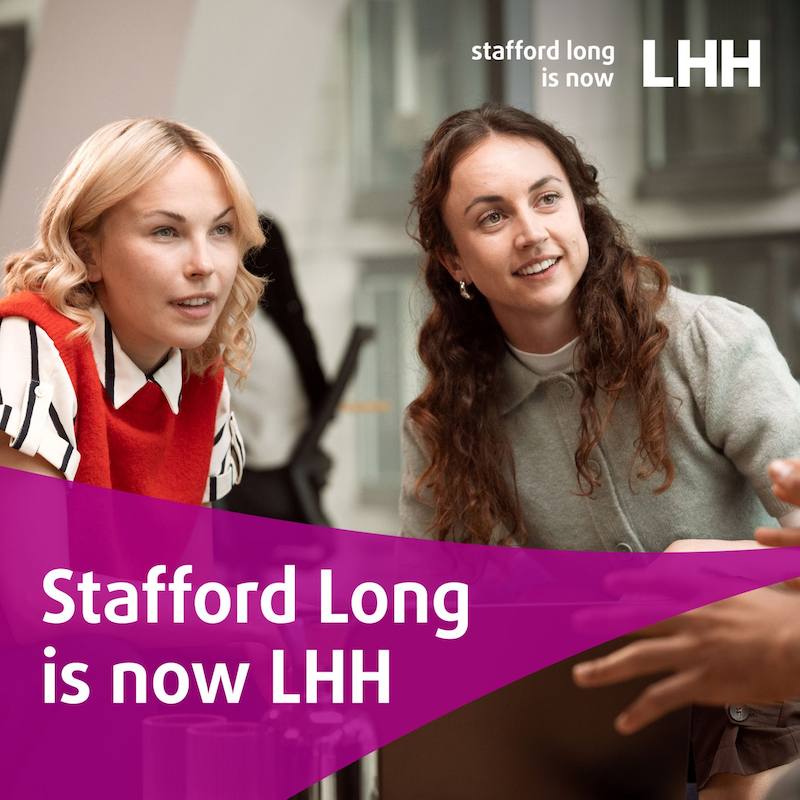Employer brands:
Let’s change the tune
In a world where genuine points of difference are few and far between, there needs to be a shift in the way we define what sets us apart, says our Executive Creative Director, Matt Johnson.
—
For all of my professional life, the word “unique” has been central to the creative process. We look for unique selling points, for unique roles, to bring to life in unique ways, for unique clients.
Really, though, we’re kidding ourselves: ‘unique’ does not exist. And maybe it never has.
Hang on. Before this article descends into some kind of existential void, let’s talk music. A few years ago, inspired by a spate of lawsuits around plagiarism in music, two musicians – one also a lawyer and the other a coder – teamed up to prove just how limited music actually is. They wrote an algorithm to calculate every possible chord progression – with the aim of copyrighting “every melody that exists and can ever exist”.
They wanted to show that, in their words, “no song is new”.
You can probably trace where I’m going here. In advertising, branding, employer branding – all communications – there is no message that is 100% new either.
—
At the tail end of last year, we took a piece of research to World Employer Branding Day in which we analysed the employer brand messages of 200 top employers from around the world. 90% of all messages used, it turns out, can be summed up in just four themes.
Theme 1: People
No surprises here: if you ask anyone, working pretty much anywhere, what they love most about their job, the answer’s likely to “the people”. And so “People” is also the most popular theme in employer branding – but with a strong emphasis on feeling involved and belonging. “Team” is mentioned often, and there is a pervading message of inclusiveness – “Be you”, “Be yourself” and “Opportunities for all” are popular phrases.
Theme 2: Impact
“Make a difference” is also one of the most enduring and overused phrases in our industry, so again, it’s nothing new to see employers talk about impact. Over time, however, the focus of that impact in employer branding messaging is shifting to the future. “Bring the future”; “Change tomorrow”; “Create a better tomorrow”. All recur, often with very little variation. You can understand why: “tomorrow” is a potent concept; an easy shortcut to feelings of optimism, possibility, hope. The problem with this, however, is that “the future” is all too vague: when an employer asks people to “imagine new horizons” or “define the possible”, they’re explicitly leaving the details to the reader’s imagination, not – as a great employer brand should be doing – building well-defined, purposeful associations.
Theme 3: Purpose
We saw over the pandemic a much-discussed rise in people’s desire for a sense of purpose through their work. A few years on, this theme has firmly entrenched itself in employer branding messaging: we see talk of “changing the world”, doing “what matters”, and being “a force for good”. The danger is, messages of this type can become overblown or, worse, solipsistic: in other words, more self-importance than real importance. Another note of caution comes from a recent study of mainstream advertising by GfK, in which they found that if an ad mentioned the organisation’s purpose or was explicitly purpose-driven, it was 12% less likely to hold viewers’ attention. Purpose matters: but so, too, does the way in which you express it.
Theme 4: Growth
The final recurring theme is professional growth – again, a topic that’s in line with what we know audiences want. In a recent study by Adecco, 62% of workers want more control over their skills, and in the last year, there’s been a 10% increase in workers looking for internal progression. Once again, the best EVPs in this area focus on making specific, believable promises; the majority get stuck on vagueness and superlatives: “excellence”, “progress”, “potential”, “becoming” merge with the showman-like grandeur of “a world of opportunities”. To stand out, more personalisation is what’s needed – and less posturing.
—
Of course, just because uniqueness is (I’d argue) impossible, it doesn’t mean you can’t stand out – either by choosing a less common theme, or expressing a common theme in an uncommon way.
If your employer brand is about people, ask yourself: “what behaviours and qualities in our people makes this organisation special?” and “what is it about our organisational culture that encourages that?”. Think how to express the individuality of your people in ways that are equally individual, charming, and magnetic.
If you want to focus on impact, consider how you can actively prove that impact. Show your people out in the world; give your audience a way to assess and measure your influence; and be clear, realistic, and honest about the world you want to build.
If it’s purpose that defines your organisation, don’t let the audience’s growing cynicism put you off. The desire for meaning amongst the audience is still there; the key is allowing them to make an emotional connection with your purpose, and avoiding the temptation to assume that everyone shares your passion for it – and therefore overplay your hand. After all, an organisational mission, no matter how focused and worthwhile, is always going to be more potent to those who are already living it than those who are on the outside.
Finally, if it’s career growth and development that are strongest for you, again, make the way you talk about it more intriguing. Career paths aren’t as straight and meticulously trodden anymore. They meander, make turns, widen, narrow, and change direction altogether. So presenting career development in a linear way just doesn’t make sense: instead, consider how your description of personal and professional growth can adapt and evolve.
—
So where does this leave us?
As employers and communicators, we all have at our fingertips the same notes and chords as everyone else. And, actually, that’s okay. The key to differentiation lies in ensuring that, while the base chords to your song may be the same, the sound, the feel, the way it’s crafted – and, of course, the lyrics that accompany it – are, unmistakably, yours and yours alone.
—
If you’re interested in exploring how you can become more distinctive in your employer brand, get in touch with us at info@staffordlong.co.uk and we’ll set up a session.



